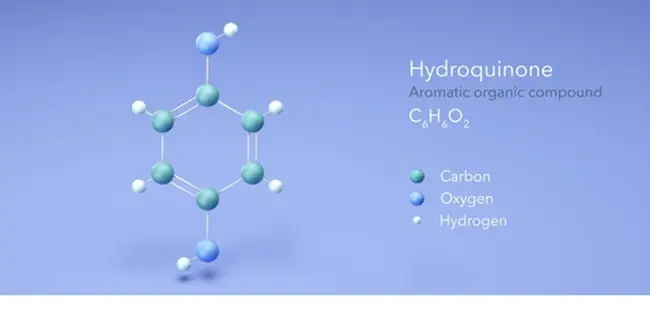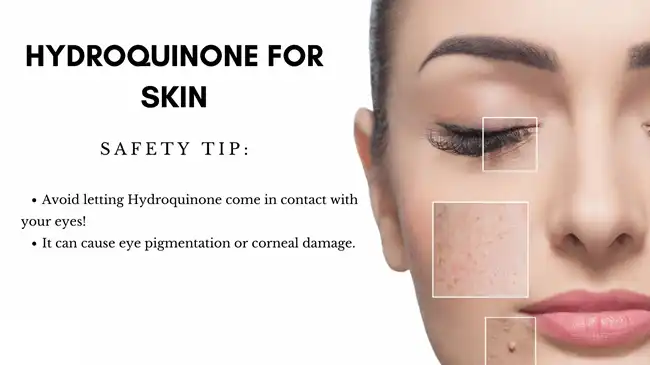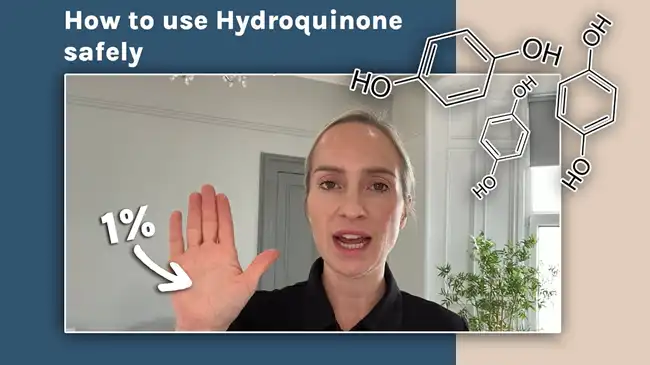Does Hydroquinone Lighten Skin Permanently?
2024-09-11 10:57:31
Hydroquinone has been a buzzword in the skincare industry for decades, renowned for its skin-lightening properties. But many people wonder: does hydroquinone lighten skin permanently? In this blog, we will delve into what hydroquinone is, how it works, and whether it can provide a permanent solution for skin lightening. We will also explore pure hydroquinone powder and its uses in various industries.
What is Hydroquinone and How Does It Work?
Synthetically, hydroquinone is a phenolic compound with the recipe C6H4(OH)2. It is a subordinate of benzene and shows up as a white, glasslike substance that is solvent in water and liquor. Its ability to disrupt the skin's natural pigmentation process is the reason it works so well to lighten the skin.
Hydroquinone works by inhibiting melanin production, the pigment that gives skin its color. Melanin amalgamation is essentially controlled by a catalyst called tyrosinase. Tyrosinase catalyzes the development of melanin from tyrosine, an amino corrosive. Hydroquinone applies its belongings by restraining this chemical, hence dialing back the creation of melanin. This restraint is vital in diminishing hyperpigmentation and accomplishing an all the more even complexion.
Unadulterated hydroquinone powder is a powerful type of hydroquinone, frequently utilized in the definition of creams, salves, and serums. Because it works well to treat hyperpigmentation, it is popular in the cosmetics industry. This structure considers exact detailing in skincare items, guaranteeing the ideal focus is accomplished for ideal outcomes.

In addition to skincare, pure hydroquinone powder is used in other industries, including:
- Pharmaceuticals: The pharmaceutical industry relies heavily on pure hydroquinone powder.
It is integrated into different meds pointed toward treating skin conditions including hyperpigmentation. Hydroquinone is frequently found in higher concentrations in these medical formulations.
- Cosmetics: The cosmetic business broadly utilizes pure hydroquinone powder in items intended to advance an even complexion. In addition to facial skincare, these products also include body lotions and creams that treat hyperpigmentation on the hands, chest, and back.
- Food Additives: Albeit more uncommon, 100 pure hydroquinone powder likewise tracks down applications in the food business, especially as an additive. Its cell reinforcement properties help in protecting specific food varieties by forestalling oxidation, which can prompt waste. Nonetheless, the utilization of hydroquinone in food is profoundly managed because of potential wellbeing concerns, and it isn't quite as common as in different enterprises.
Is Hydroquinone a Permanent Solution for Skin Lightening?
Hydroquinone is widely acclaimed for its ability to lighten dark spots and even out skin tone, but it is important to understand that it does not offer a permanent solution. Here’s why:
Reversibility of Effects
The skin-lightening effects of hydroquinone are temporary. Hydroquinone works by inhibiting the enzyme tyrosinase, which plays a crucial role in the production of melanin, the pigment responsible for skin color. While this inhibition is effective in reducing hyperpigmentation, it does not permanently alter the skin's ability to produce melanin.
- Melanin Production Resumes: When you discontinue the use of hydroquinone, your skin’s natural melanin production will gradually return to its normal levels. This means that the pigmentation issues you addressed with hydroquinone are likely to reappear over time.
- Continuous Use Required: To maintain the skin-lightening effects, continuous use of hydroquinone is necessary. This dependency on regular application underscores its temporary nature.

Potential Side Effects
Risks of Prolonged Use
Prolonged use of hydroquinone powder is associated with several potential side effects, which further complicates its suitability as a long-term solution.
- Ochronosis: One of the most concerning side effects is ochronosis, a condition where the skin becomes dark, thickened, and blue-black in color. This paradoxical hyperpigmentation is rare but serious, often resulting from extended use of hydroquinone.
- Skin Irritation and Sensitivity: Hydroquinone can cause skin irritation, redness, and increased sensitivity. These side effects necessitate careful monitoring and sometimes require users to take periodic breaks from using the product to allow the skin to recover.
Periodic Breaks Necessary
Due to these potential side effects, dermatologists often recommend taking breaks from hydroquinone use. These breaks can cause pigmentation to reappear, highlighting the non-permanent nature of the treatment. Therefore, while hydroquinone is effective in the short term, it is not a sustainable solution for long-term skin lightening without careful management and breaks.
Combination with Other Treatments
For those seeking more permanent skin-lightening results, hydroquinone is often used in combination with other dermatological treatments. These combined approaches can help enhance the effectiveness of hydroquinone and maintain the results for a longer period.
- Chemical Peels: Chemical peels involve the application of a chemical solution to the skin, which exfoliates the surface and promotes the regeneration of new, lighter skin. This can enhance the effects of hydroquinone by providing deeper penetration and more uniform results.
- Laser Therapy: Laser treatments target the deeper layers of the skin to break down melanin deposits. When used alongside hydroquinone, laser therapy can help achieve more significant and longer-lasting lightening effects.
- Retinoids: Retinoids, such as tretinoin, are often prescribed with hydroquinone powder. They accelerate cell turnover, helping to shed pigmented cells faster and enhance the lightening effects of hydroquinone.
How to Use Hydroquinone Safely?
To maximize the benefits of hydroquinone while minimizing risks, it’s crucial to use it correctly:
Consult a Dermatologist
Before starting any hydroquinone treatment, consult with a dermatologist. They can recommend the appropriate concentration and usage regimen based on your skin type and specific needs.
Follow Instructions Carefully
Use hydroquinone products as directed. Overuse can lead to increased risks of side effects, while underuse may not yield desired results.
Sun Protection
Hydroquinone makes your skin more susceptible to UV damage. Always apply sunscreen with a high SPF when using hydroquinone products and avoid excessive sun exposure.
Monitor Your Skin
Pay attention to how your skin responds. If you experience severe irritation or any unusual changes, discontinue use and seek medical advice.

Conclusion
Hydroquinone is a powerful tool in the fight against hyperpigmentation, offering significant results in lightening dark spots and evening out skin tone. However, it is not a permanent solution. Continuous use is required to maintain the benefits, and potential side effects must be considered. For those seeking longer-lasting results, combining hydroquinone with other dermatological treatments may be the best approach.
Pure hydroquinone powder is highly valued for its versatility and efficacy in various applications, from cosmetics to pharmaceuticals. By understanding how to use it safely and effectively, you can achieve the desired skin-lightening results while minimizing risks.
Our factory also can supply OEM/ODM One-stop service, including customized packaging and labels. For more information on high-quality Pure Hydroquinone Powder and other herbal extracts, feel free to contact us at Jessica@xazbbio.com.
References
1. Smith, J. & Allen, R. (2020). "The Efficacy and Safety of Hydroquinone in Dermatology." Journal of Cosmetic Dermatology, 19(3), 543-555.
2. Brown, L. & Williams, H. (2019). "Hydroquinone: Mechanisms of Action and Clinical Application." Dermatology Research and Practice, 2019, Article ID 8706742.
3. Nguyen, P. & Lee, M. (2021). "Managing Hyperpigmentation: Hydroquinone and Beyond." Clinical, Cosmetic and Investigational Dermatology, 14, 285-298.
4. Chen, Y. & Zhang, Q. (2020). "Side Effects of Long-Term Hydroquinone Use and Management Strategies." International Journal of Dermatology, 59(10), 1212-1220.
5. Patel, S. & Kumar, R. (2018). "Combination Therapies with Hydroquinone for Improved Hyperpigmentation Treatment." Journal of Clinical and Aesthetic Dermatology, 11(2), 34-40.
6. Garcia, E. & Martinez, J. (2021). "Role of Antioxidants in Reducing Hydroquinone-Induced Side Effects." Dermatologic Therapy, 34(4), e14912.
7. Jones, D. & Clark, K. (2019). "Sun Protection and Hydroquinone: A Combined Approach for Optimal Skin Health." Skin Pharmacology and Physiology, 32(6), 329-336.
Send Inquiry
You may like
Related Industry Knowledge
- Does Omega 3 Fish Oil Lower Cholesterol?
- What is Omega Fish Oil 3 Good For?
- Does Phenibut Show On Drug Test?
- How Long For Magnesium Glycinate To Work?
- What is L-Glutathione used for?
- how long does alpha arbutin take to work?
- What Is The Difference Between Magnesium And Magnesium Glycinate
- How Much Zinc L Carnosine Per Day?
- What Does Berberine Do For The Body?
- What Does Phycocyanin Do For The Brain?


